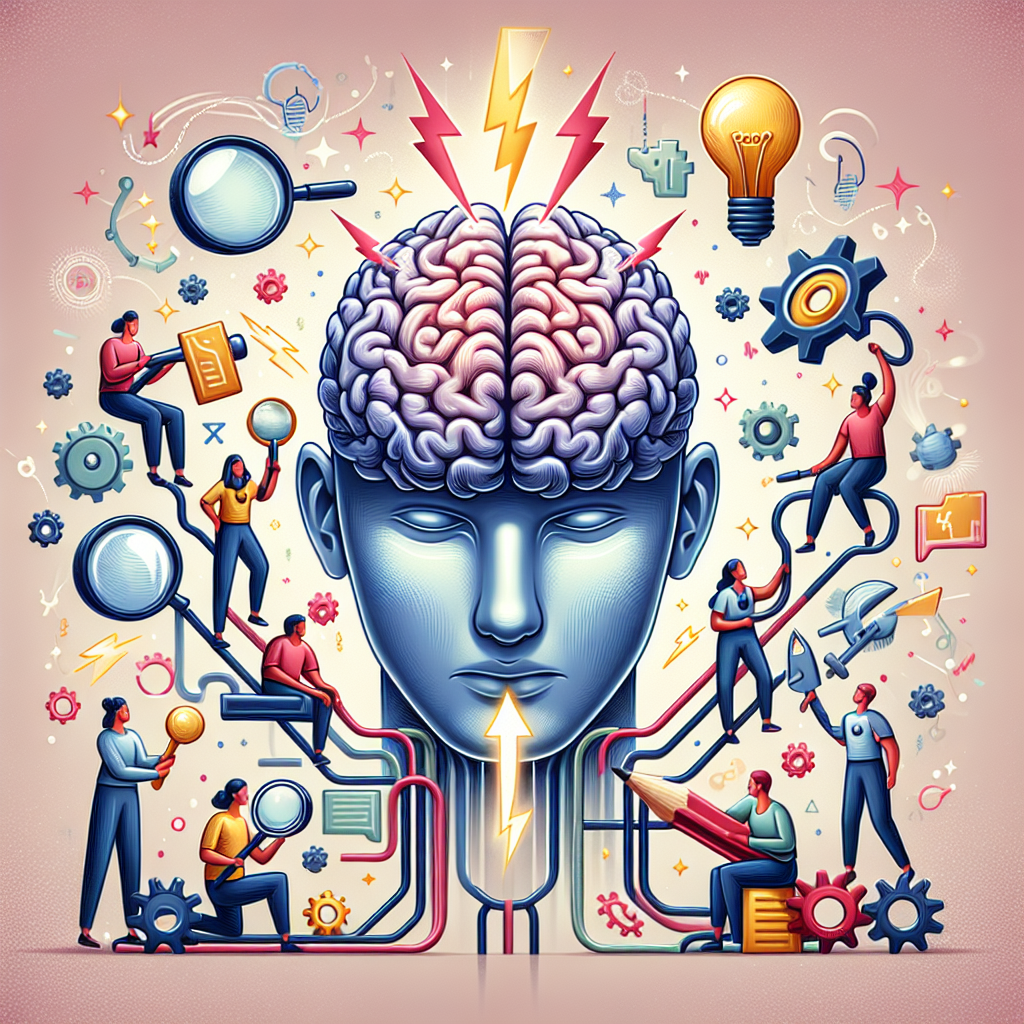Critical thinking skills are essential for navigating the complexities of everyday life. From making decisions in the workplace to solving problems at home, the ability to think critically can make a significant difference in your overall success and well-being. In this article, we will explore how to boost your critical thinking skills for better problem-solving.
What is Critical Thinking?
Critical thinking is the process of analyzing and evaluating information in order to make informed decisions. It involves actively questioning assumptions, considering different perspectives, and using logic and evidence to support conclusions. Critical thinking can help you make better choices, solve problems more effectively, and communicate more persuasively.
Why is Critical Thinking Important?
Critical thinking is a valuable skill in today’s fast-paced, information-rich world. With so much data available at our fingertips, it can be challenging to sift through the noise and make sense of what is truly important. Critical thinking allows us to separate fact from fiction, identify biases and fallacies, and make well-reasoned decisions based on evidence and logic.
How to Boost Your Critical Thinking Skills
1. Ask Questions
One of the most important aspects of critical thinking is asking questions. When faced with a problem or decision, take the time to ask yourself why things are the way they are, what assumptions are being made, and what evidence supports a particular conclusion. Asking questions can help you uncover hidden assumptions, identify potential biases, and gain a deeper understanding of the issue at hand.
2. Consider Different Perspectives
Another key component of critical thinking is considering different perspectives. Before settling on a solution or conclusion, take the time to look at the problem from multiple angles. This can help you see things from a different point of view, challenge your assumptions, and find creative solutions that you may not have considered otherwise.
3. Evaluate Evidence
Critical thinking also involves evaluating evidence. When making a decision or solving a problem, it is important to look at the evidence objectively and consider its reliability, relevance, and credibility. By basing your conclusions on sound evidence, you can make more informed decisions and avoid common pitfalls such as relying on anecdotal evidence or jumping to conclusions based on incomplete information.
4. Use Logic
Logic is a fundamental aspect of critical thinking. By using logical reasoning, you can identify and avoid common fallacies, such as circular reasoning, ad hominem attacks, and false dichotomies. Logical thinking can help you make sound decisions, identify flaws in arguments, and communicate more effectively with others.
5. Practice Mindfulness
Mindfulness can also help boost your critical thinking skills. By practicing mindfulness, you can improve your focus, reduce distractions, and become more aware of your thoughts and emotions. This can help you think more clearly, make better decisions, and solve problems more effectively.
6. Seek Feedback
Seeking feedback from others can also help improve your critical thinking skills. By asking for input from colleagues, friends, or mentors, you can gain new perspectives, challenge your assumptions, and identify blind spots that you may not have considered on your own. Feedback can help you grow and improve as a critical thinker.
7. Practice Problem-Solving
Finally, one of the best ways to boost your critical thinking skills is to practice problem-solving. Whether you are facing a complex work project or a personal challenge, take the time to analyze the problem, consider different options, and evaluate potential solutions. By practicing problem-solving regularly, you can hone your critical thinking skills and become a more effective problem solver.
FAQs
1. What are the benefits of improving critical thinking skills?
Improving your critical thinking skills can have a variety of benefits, including better decision-making, improved problem-solving abilities, enhanced communication skills, and increased creativity. Critical thinking can also help you identify and avoid common pitfalls, such as biases and fallacies, and make more informed choices based on evidence and logic.
2. Can anyone learn to think critically?
Yes, anyone can learn to think critically with practice and dedication. While some people may have a natural aptitude for critical thinking, the skills can be developed and improved over time through practice, feedback, and reflection. By actively seeking out opportunities to apply critical thinking skills in your daily life, you can become a more effective problem solver and decision-maker.
3. How can I apply critical thinking skills in my work?
Critical thinking skills can be applied in a variety of work settings, including decision-making, problem-solving, communication, and creative thinking. By actively questioning assumptions, considering different perspectives, and using logic and evidence to support conclusions, you can make better decisions, solve problems more effectively, and communicate more persuasively with colleagues and clients.
4. What resources are available to help me improve my critical thinking skills?
There are many resources available to help you improve your critical thinking skills, including books, online courses, workshops, and critical thinking exercises. You can also seek out opportunities to practice critical thinking in your daily life, such as solving puzzles, engaging in debates, or analyzing news articles. By actively seeking out opportunities to improve your critical thinking skills, you can become a more effective problem solver and decision-maker.
In conclusion, critical thinking skills are essential for navigating the complexities of everyday life. By asking questions, considering different perspectives, evaluating evidence, using logic, practicing mindfulness, seeking feedback, and practicing problem-solving, you can boost your critical thinking skills and become a more effective problem solver. Remember to apply these skills in your work, seek out resources to help you improve, and actively practice critical thinking in your daily life. With dedication and practice, you can enhance your critical thinking skills and achieve better outcomes in both your personal and professional life.





Leave A Comment